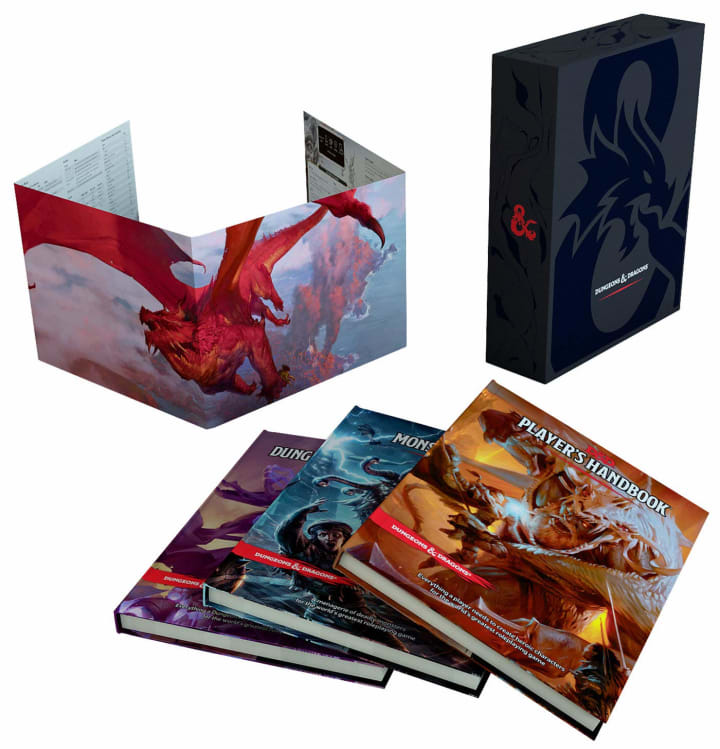How to be a DM
Mastering the Art of Dungeon Mastering: A Comprehensive Guide on How to Be a DM

Dungeon Master, or DM for short, is a crucial role in tabletop role-playing games (RPGs) like Dungeons & Dragons. The DM is responsible for creating and running a fictional world where players can immerse themselves in their characters and experience epic adventures. Being a DM is not an easy task, as it requires a combination of creativity, storytelling, planning, and people skills. However, mastering the art of being a DM can make a huge difference in the quality of the gaming experience for all players involved. In this article, we will explore the essential skills and strategies that a DM should possess in order to create an engaging and exciting game session. Whether you are new to the role of DM or are looking to improve your skills, this guide will provide you with valuable insights and practical tips on how to become a successful and effective Dungeon Master.
Understanding the Role of a DM
Being a Dungeon Master is not just about creating and narrating a fantasy world; it's about being the catalyst that drives the game forward. A DM must have a clear understanding of their role and responsibilities to create an immersive experience for the players.
First and foremost, a DM is responsible for creating a fictional world that players can explore. This includes creating a detailed setting, rich with lore and history, where players can interact with the environment and its inhabitants. The world should feel alive and dynamic, with NPCs who have their own personalities, goals, and motivations.
Secondly, a DM is responsible for creating and managing the game mechanics. They should be familiar with the rules of the game and be able to adjudicate them fairly. This includes creating encounters, setting up traps, and determining the outcome of player actions.
Thirdly, a DM must be an excellent storyteller. They should be able to create a compelling narrative that keeps players engaged and invested in the game. This means crafting a story that is both exciting and meaningful, with twists and turns that keep players on the edge of their seats.
Finally, a DM should possess a range of key skills to be effective in their role. These include excellent communication skills, the ability to improvise and think on their feet, and the ability to manage different types of players and personalities.
Overall, being a DM is a multifaceted role that requires a combination of creativity, technical proficiency, and interpersonal skills. Understanding the role and responsibilities of a DM is the first step to becoming a successful Dungeon Master.
Preparation and Planning
One of the most important aspects of being a DM is preparation and planning. A DM who fails to plan risks creating a disjointed and unsatisfying game experience for their players. Below are some key elements of preparation and planning that every DM should consider.
Firstly, a DM must have a deep understanding of the game system they are using. This includes understanding the rules, mechanics, and guidelines that govern the game. Without this knowledge, it will be difficult to create a cohesive and meaningful game experience for the players.
Secondly, a DM should spend time worldbuilding. This includes creating a detailed map of the game world, developing a history and mythology, and populating the world with NPCs and factions. The more detailed and immersive the world, the more engaged the players are likely to be.
Thirdly, a DM must create compelling and interesting characters for players to interact with. This includes both NPCs and player characters. A DM should have a clear idea of each character's backstory, personality, and motivations.
Fourthly, a DM must be skilled in storytelling. This includes creating a coherent and engaging narrative that keeps players invested in the game. The story should be driven by the players' actions, and should include twists and turns that keep players guessing.
Finally, a DM should create a game session plan that outlines the objectives, encounters, and challenges that players will face. This should include a rough timeline for the session, as well as notes on how to handle different scenarios that may arise.
In summary, preparation and planning are critical components of being a successful DM. A DM who takes the time to plan and prepare is more likely to create a fun, engaging, and meaningful game experience for their players.
Running a Game Session

Running a game session is where the DM's skills are put to the test. A DM who is skilled at running game sessions can create a memorable experience that players will remember for years to come. Below are some key elements of running a successful game session.
Firstly, a DM must set the scene. This includes providing descriptions of the environment, the weather, and the mood. The scene should be immersive, and players should be able to picture themselves in the environment.
Secondly, a DM must set the mood. The mood should be appropriate to the situation, whether it's tense, dramatic, or lighthearted. Music, lighting, and props can all help to create the right mood.
Thirdly, a DM must guide the players. This means providing clear objectives, and helping players to navigate the game world. The DM should be able to answer questions and provide guidance when needed.
Fourthly, a DM must be able to deal with challenges. This includes managing combat encounters, resolving puzzles, and handling other obstacles that players may face. The DM should be able to keep the game moving forward while maintaining a fair and balanced experience for all players.
Finally, a DM should encourage player creativity. This means allowing players to make decisions and take actions that affect the game world. The DM should be able to adapt to player actions, and be prepared to improvise when necessary.
In conclusion, running a successful game session requires a combination of technical skill, creativity, and interpersonal skills. A skilled DM can create a game experience that is engaging, exciting, and memorable for all players.
Dealing with Players
Interacting with players is an essential part of being a DM. Below are some important elements to consider when dealing with players.
Communication: Effective communication is key to ensuring that all players understand the game world and the rules of the game. A DM should be clear and concise in their communication and be open to answering questions from players.
Creating a Safe Space: A DM should create a safe space for all players to feel comfortable and included. This involves being respectful of all players and their boundaries, and addressing any issues that may arise in a prompt and professional manner.
Encouraging Collaboration: Collaboration is important in D&D gameplay, and a DM should encourage players to work together to achieve common goals.
Addressing Conflict: Conflict can arise during gameplay, and a DM should be prepared to address it in a calm and professional manner. This involves listening to all players involved, understanding the issue at hand, and finding a fair and effective solution.
Providing Feedback: A DM should provide constructive feedback to players to help them improve their gameplay and character development. This can be done through one-on-one conversations or group discussions.
Handling Difficult Players: Dealing with difficult players can be challenging, but it's important to remain calm and professional. This involves addressing the issue with the player in a respectful manner and finding a solution that works for all players involved.
In summary, dealing with players is an important part of being a DM. Effective communication, creating a safe space, encouraging collaboration, addressing conflict, providing feedback, and handling difficult players are all important elements to consider when dealing with players. A DM who is skilled in these areas is more likely to create a game that is enjoyable, engaging, and memorable for all players.
Improving Your DM Skills
As with any skill, improving your DM skills takes practice and dedication. Below are some tips to help you improve as a DM.
Read the D&D rulebooks and adventure modules to gain a better understanding of the game world and its mechanics. This will help you create better and more engaging adventures for your players.

Play as a player in other D&D games to gain a better understanding of how other DMs run their games. This can help you learn new techniques and strategies that you can use in your own games.
Reflect on your gameplay and seek feedback from your players. This can help you identify areas where you excel and areas where you need improvement.
Practice running games with new players or in new settings to help you gain experience and confidence.
Attend workshops, conventions, or online courses to learn new techniques and strategies for running D&D games.
Collaborate with other DMs to share ideas and learn new strategies for running D&D games.
In summary, improving your DM skills takes practice, dedication, and a willingness to learn. Studying, playing, reflecting, practicing, learning, and collaborating are all important ways to improve as a DM. By continually working to improve your skills, you can create more engaging and enjoyable games for your players.
Conclusion
Being a DM can be a challenging but rewarding experience. With the right mindset, preparation, and skills, a DM can create engaging and memorable game sessions for their players. Understanding the role of a DM, preparing game content, running game sessions, dealing with players, and improving DM skills are all important elements to consider when striving to become a successful DM. By following the tips and strategies outlined in this article, you can become a skilled and confident DM and create unforgettable gaming experiences for you and your players.
About the Creator
Sergio López
Passionate Dungeons & Dragons enthusiast with a deep love for all things fantasy. I was first introduced to the world of D&D as a young child, and I've been captivated by the game ever since.
Enjoyed the story? Support the Creator.
Subscribe for free to receive all their stories in your feed. You could also pledge your support or give them a one-off tip, letting them know you appreciate their work.






Comments
There are no comments for this story
Be the first to respond and start the conversation.